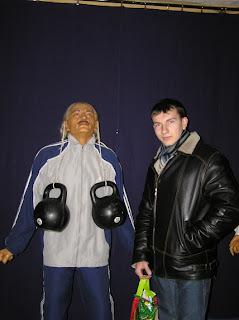Class appears to me to be going well. So far we have discussed the following topics: an introductory overview of deaf education, statistics related to hearing loss, early detection and identification of hearing loss, cochlear implants, syndromes associated with hearing loss, audiological evaluation, and students with disabilities in addition to hearing loss.
Tomorrow, we will begin discussing cognitive development of children with hearing loss. There is considerable material I would like to cover, so I am not sure we can get through all of it during one session. The topics I hope to touch upon include historic trends in cognitive research, the debate regarding Deaf children as concrete or abstract learners, intelligence of Deaf children, the role of language in cognition, possible differences between hearing and Deaf children, metacognition, and cognitive testing.
In addition to teaching, another project in which I am engaged is helping to set up a program for students with disabilities attending V. Dahl EUNU. This will be an ongoing project with significant long term implications for all students with special needs who wish to attend the university. Dr. Krsek also has asked me to help her write a grant to secure funding to purchase digital hearing aids and laptops for deaf students attending the university with the goal of facilitating their success. Deaf students have never attended EUNU before, and it is extremely rare for students with disabilities to attend programs of higher education in Ukraine. Dr. Krsek is hoping to change that, and I would like to see her succeed. What is customary in the U.S. is rare here in Ukraine.
In the U.S., all publicly funded universities are required to admit and provide appropriate services to students with disabilities, and as far as I know, most if not all universities have a specific office to oversee this responsibility. At the University of Kansas, this office is known as "KU Disability Resources." At Minot State University, students receive support from "MSU Disability Services." In order for students with disabilities to succeed at EUNU, the university should establish a similar department or office to provide critical support services to these individuals. Success will not occur by simply placing students in university classes. Ensuring success requires a high level of commitment, resources, and services by university officials. One critical component of a successful inclusion program at any university is a department to provide guidance and academic support to students with disabilities in order to facilitate learning during their studies.
For Deaf college and university students, a few critical services include interpreters, note takers, captioned video presentations, audiological services, providing information and in-service training to faculty, environmental modifications to classrooms, amplification in classrooms, accessibility to TTYs, and emergency signal devices (flashing fire alarms).





























